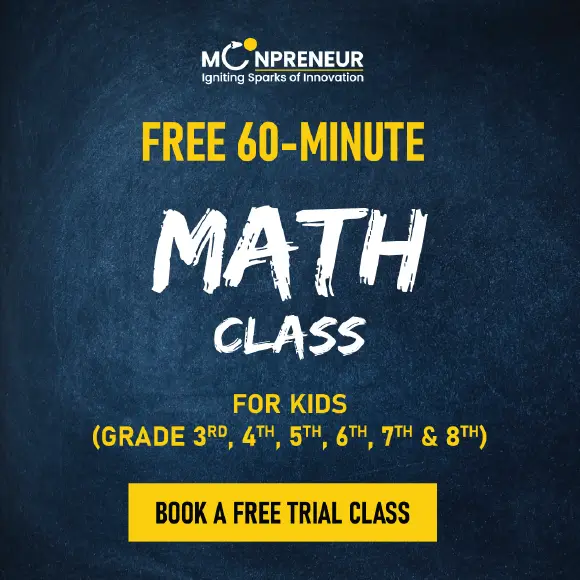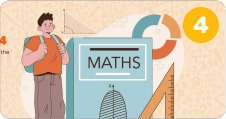In 1885, a mathematics competition occurred in Bucharest, Romania, with seventy pupils vying for eleven prizes. This marked the beginning of a fascinating journey in the world of math.
Fast forward to the present era, where the International Mathematical Olympiad (IMO) is one of the most prestigious math competitions. The inaugural IMO, designed exclusively for high school students, was held in 1959 in Romania, with seven countries competing. Since then, it has expanded to include over 100 countries from five continents. The IMO Board ensures the continuity of the competition, guaranteeing its annual occurrence and upholding the regulations and traditions.
Recommended Reading: Math Anxiety: Symptoms, Causes and How to Overcome
In addition to the IMO, various math competitions are held globally and nationally, featuring renowned events like Math Kangaroo, Math Madness Team Event, Cantor Dust Math Tournament, and Wisconsin Mathematics, Engineering & Science Talent Search.
Now, the question arises: What are the benefits and drawbacks of participating in math competitions? In this blog, we will explore the pros and cons to help you make an informed decision about engaging in these competitions.
Pros of Math Competitions
According to Peninsula Academy, math competitions create an opportunity to showcase talent within a stimulating, enjoyable, and well-structured environment.
Here are the pros of participating in math competitions:
1. Enhances understanding and application of associative and commutative properties
In mathematics, the associative property refers to the property of an operation that states that the grouping of numbers being operated on does not affect the result.
For example, (a + b) + c equals a + (b + c). Similarly, in multiplication, (a * b) * c equals a * (b * c).
On the other hand, the commutative property states that the order of numbers being operated on does not affect the result.
For example, in addition, a + b is equal to b + a, and in multiplication, a * b is equal to b * a.
By solving these problems, students develop a deeper understanding of how these properties work in different contexts, helping them reinforce their understanding and application of these fundamental concepts.
These properties are fundamental in mathematics and are used extensively in various algebraic operations and problem-solving techniques.
2. Computational Skills
Mental arithmetic, numerical estimation, algebraic manipulation, logical reasoning, and proficiency in using mathematical tools and techniques to arrive at solutions come under computational skills.
While preparing for competitions, students solve complex mathematical problems under time pressure, which sharpens their computational skills. They learn to quickly analyze and apply various mathematical techniques and algorithms to arrive at accurate solutions.
Regular practice and exposure to diverse problem-solving strategies in math competitions enhance students’ ability to think critically, make quick calculations, and improve their computational skills.
3. Critical thinking skills
Math competitions encourage students to think creatively and critically when faced with complex problems. They learn to approach challenges from different angles, explore various problem-solving strategies, and improve their ability to think outside the box. This skill set extends beyond mathematics and proves valuable in other academic areas and real-life situations.
4. Pattern recognition
Math competitions frequently involve problems that exhibit patterns or require students to identify patterns within the data provided. Developing pattern recognition skills enable students to recognize underlying structures, make connections, and extrapolate information to solve complex problems.
5. Time management
Any competition has strict time constraints, forcing students to think quickly and efficiently use their time. This cultivates the ability to prioritize information, make decisions under pressure, and manage time effectively, all of which are essential components of critical thinking.
6. Reflective thinking
After competitions, students are often encouraged to review their solutions, identify alternative approaches, and reflect on their problem-solving strategies. This reflective thinking process promotes self-assessment, self-correction, and continuous improvement, all contributing to enhanced critical thinking skills.
7. Builds Confidence
Finally, successfully solving complex math problems in a competitive setting boosts students’ confidence. It validates their efforts and reinforces their belief in their abilities. This newfound confidence often translates into improved performance in other academic subjects and boosts their overall academic performance.
Cons of Math Competitions:
1. Stress and Pressure
Stress and pressure are synonymous with competition. Math competitions, which can be extremely difficult, can also cause stress and strain on competitors. The intense preparation, high expectations, and time constraints can cause anxiety and adversely affect a student’s mental well-being. The pressure to perform can sometimes take away the joy of learning and turn mathematics into a source of stress rather than enjoyment.
2. Limited Scope of Mathematics
While math competitions cover many topics, they often prioritize speed and problem-solving techniques over deep understanding. This approach may prevent students from investigating mathematics’s beauty and complexities beyond the contests’ requirements. It is critical to blend competition-focused preparation with broader subject knowledge.
3. Narrow Focus on Individual Achievement
Math competitions predominantly emphasize individual performance rather than collaborative learning. This approach may hinder the development of teamwork and cooperation skills, which are crucial for success in the professional world. Students who prefer collaborative learning environments may find the individualistic nature of competitions less appealing.
4. Time Commitment
Preparing for math competitions requires significant time and effort, which can become overwhelming, especially when combined with other academic commitments and extracurricular activities. Balancing competition preparation with other aspects of life becomes challenging, potentially affecting a student’s overall well-rounded development.
Conclusion
Like a coin, math competitions have two sides – pros and cons. It is up to us to effectively manage and overcome the challenges while embracing the benefits. Mitigating the adverse effects can be achieved through various means, such as having supportive mentors, employing effective learning techniques, and receiving understanding from one’s family, among other factors.
Moonpreneur understands the needs and demands this rapidly changing technological world is bringing with it for our kids. Our expert-designed Advanced Math course for grades 3rd, 4th, 5th, and 6th will help your child develop math skills with hands-on lessons, excite them to learn, and help them build real-life applications.
Register for a free 60-minute Advanced Math Workshop today!
















